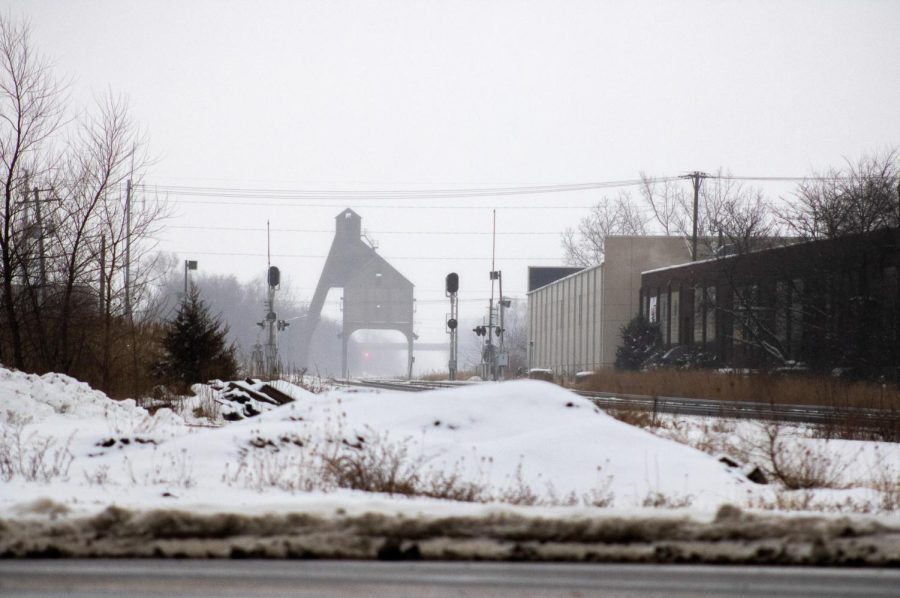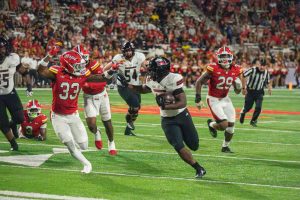Firm begins DeKalb Metra study
A view of the Union Pacific owned train tracks looking southwest from the currently out-of-service DeKalb train station parking lot at the corner of East Locust Street and North 6th Street in downtown DeKalb. (Tim Dodge | Northern Star)
January 31, 2023
DeKALB – NIU is missing a major mode of transportation: A commuter rail. This could change in the coming years as the city evaluates the possibility of a Metra train station and has already begun investing in one.
On Jan. 9, the DeKalb City Council approved a $98,379 contract with Sam Schwartz Consulting LLC to study the viability of such an addition to the city’s current transportation.
The study should take about four months to complete, comprising multiple stages of traffic pattern analysis, transit ridership potential and investigation of current transportation methods in the city, according to the project outline.
“They (Sam Schwartz Consulting) understood the playing field and the challenges,” DeKalb Transit Manager Mike Neuenkirchen said. “They know a lot of the players in this community.”
Neuenkirchen said the firm will be assessing the feasibility of extending the current Metra train line in Elburn to DeKalb over the next 120 days, potentially giving the city a stronger connection to Chicago and its suburbs.
“Having that access is really important because it’s a much easier way to travel, and you’re not fighting for hours in traffic and worrying about the wear and tear on your personal vehicle,” Neuenkirchen said.
Emily Brier, a senior environmental studies major and member of the environmental activism group Sunrise DeKalb, said the current traffic patterns in the city create more hassle than they’re worth.
“All the cars on the road at once really wear down the pavement, and maintaining parking lots destroys natural land,” Brier said. “Not to mention that driving is statistically more dangerous for commuters and destructive to the environment than taking a train.”
In 2018, Metra emissions were 76% lower than cars’ per mile traveled, according to the Chicago Regional Transit Authority. In 2020, 38,824 deaths were attributed to motor vehicle crashes and 743 were attributed to railroad accidents, according to the U.S. Bureau of Transportation Statistics.
Brier said NIU students would benefit from having access to a Metra train.
“We could all benefit from a train in DeKalb,” Brier said. “I feel like downtown DeKalb isn’t frequented by students because of the heavy traffic, so this would help stimulate business for students and the university.”
The importance of giving NIU access to this commuter rail is also mentioned in the firm’s project overview, with the company citing their previous experience working with other universities as a motivating factor.







